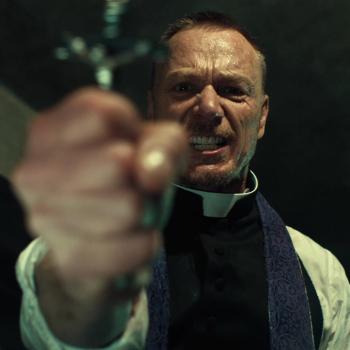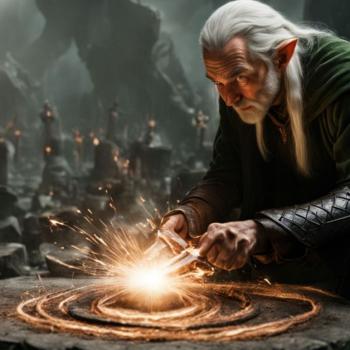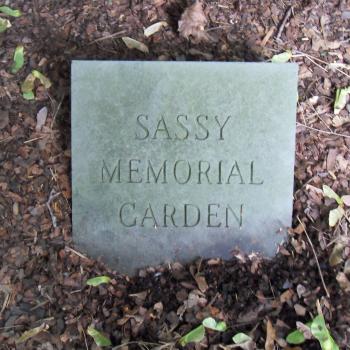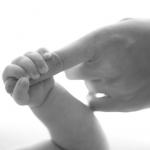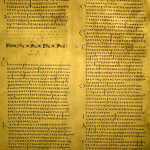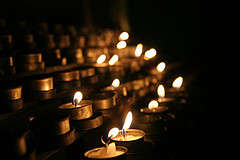 If you practice a religion faithfully—faith-fully—, why do you do this? And why is it this particular religion that you practice?
If you practice a religion faithfully—faith-fully—, why do you do this? And why is it this particular religion that you practice?
“The embarrassing fact is that most religious people seem to believe in a religion for no better reason than that their parents believed in it.” So states poet and literary critic Adam Kirsch in his review-essay “Is Reason Enough?” in The New York Review of Books (April 23, 2015).
I just can’t buy this statement. Not, at least, for contemporary western culture. Precisely because we went through the “God is dead” phase throughout most of the twentieth century, when God now comes alive for any of us there’s no predicting where God’s life will lead us.
Naturally, I think first of my own experience. Raised by parents of Jewish heritage who had stopped practicing their religion when they got married, I learned as a child about a few of the Jewish holidays—but in a perfunctory way. For my parents, God was no longer alive in their inherited faith.
When God began to come alive for me in early adulthood, I began reading the Bible. I got to the Gospels and—wow!—they swept me up. I longed to follow Jesus. The longing led me to step (nervously) in the door of various Christian churches on Sunday mornings. I loved them all. All were preaching exactly what I was coming to believe. All the communities seemed to be living out their Christian faith. I longed to be part of such a community.
Then coincidence (or the Holy Spirit?) stepped in. Two acquaintances about my age suddenly died. Both happened to be Catholics. At their funerals, when people went forward for Communion, I found myself hungering for it.
At the same time, I was reading the newly published letters of Flannery O’Connor. She’d heard someone dismiss the Eucharist as “just a symbol,” and in indignant reply wrote: “If it’s just a symbol, to hell with it. It’s the center of existence for me.” How, I thought, can I live without this “center of existence”?
This is how, in my thirties, I came to be baptized as a Catholic.
My sponsor at baptism was a cradle Catholic. But he doesn’t remain a Catholic just because it was his parents’ religion—but because he’s continually nurtured by his faith (even as he disagrees with some of its dogma).
Among my many other friends who practice a religion, if they continue in their parents’ faith, it’s an adult choice. Often they choose another religious practice where God is more alive for them. (At my local mosque, African-Americans have told me they converted to Islam because the Christianity they were raised in carried unacceptable historical racist baggage.)
None of us chooses a religion because of its dogma. And here I do agree with what Adam Kirsch later says: “It is virtually never the case that people choose their faith based on a consideration of the truth claims of all the rival possibilities.”
Kirsch makes this statement in argument with the book he’s reviewing: Life After Faith: The Case for Secular Humanism, by Philip Kitcher. But, no, “argument” isn’t the right word. What I treasure about The New York Review of Books is that its reviews are really, like this one, long conversations between the reviewer and the book under review. And Kirsch’s conversation with Life After Faith is very nuanced.
So Kirsch can sympathize with the book’s central concern, which is to persuade us that ethics do not depend on religion but can be grounded in human reason alone—that, in other words, we can be good without God.
But at the same time, Kirsch pulls the rug out from under many of Kitcher’s secular humanist premises. Kitcher acknowledges, for instance, that the dominant culture’s loss of faith has left a tragic wound—which (to Kitcher’s mind) makes reason-based ethics even more needed. Here is Kirsch’s nuanced response:
The composure and dignity of Life After Faith are owed to this serene confidence that secular humanism can, ultimately, give us what we demand from religion, and on a firmer basis of truth. If the loss of faith is a genuine wound, however, is it really possible to heal it so completely that it doesn’t leave at least a scar?
What excites me about this paragraph is that it respectfully presents Kitcher’s core point while also responding with a devastating question. Religious faith has a grounding, this question implies, that is way beyond where reason can reach.
Kirsch’s equal respect for religion and for secularism is something new to The New York Review of Books these past twenty years or so. Before then, the NYRB was determinedly secularist. Any essay in this leading intellectual magazine that had occasion to mention God (and there were few) would put the word in scorn-quotes: “God.”
Then around the close of the last century, I began noticing with gratitude how the scorn-quotes were disappearing. Essays that had occasion to mention religion or God (and there were more) did so comfortably. It’s not that the NYRB “got religion”—but that it was no longer anxious with the subject.
I specifically remember a review-essay a few years ago on Australian poet (and Christian) Les Murray, which talked matter-of-factly about divinity and grace in regard to Murray’s poems. I was so relieved by this that I burst out with an Alleluia!
Does Adam Kirsch practice his inherited Jewish faith? I don’t know. And I don’t need to know. What I do know—gratefully—is that he and countless other contemporary intellectuals are now comfortable recognizing that God is alive for many of us.
Peggy Rosenthal is director of Poetry Retreats and writes widely on poetry as a spiritual resource. Her books include Praying through Poetry: Hope for Violent Times (Franciscan Media) and The Poets’ Jesus (Oxford). See Amazon for full list. She also teaches an online course, “Poetry as a Spiritual Practice,” through Image’s Glen Online program.
Photo above credited to Michael Hilton and used under a Creative Commons license.




